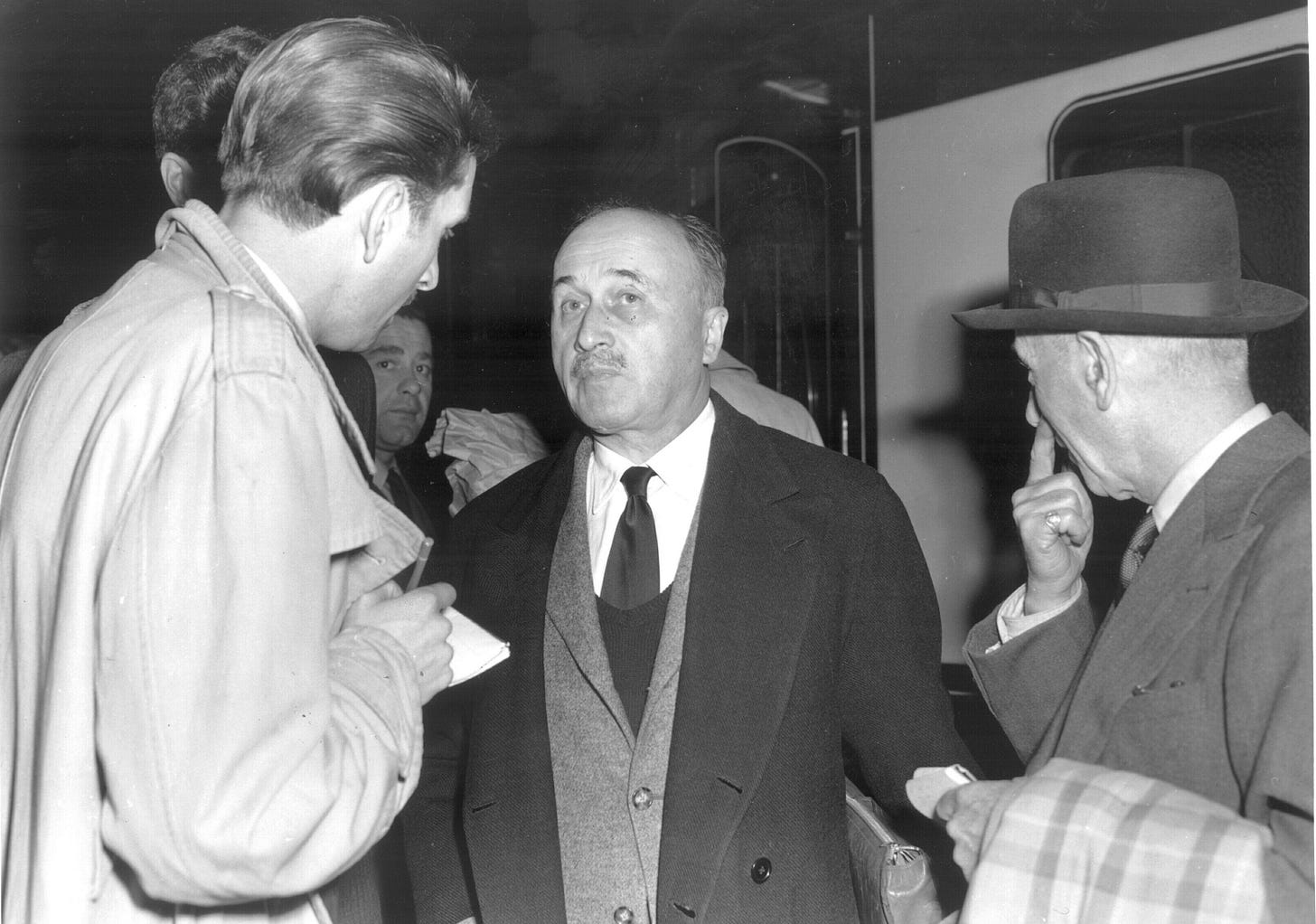Jean Monnet, the coal and steel community’s new president in August 1952
Listen to the podcast via Apple or Spotify
In the unlikely event that they read a whole book, the new tenants of the White House, Pentagon, and State Department would be shocked to learn how instrumental their predecessors were in forming what is now the European Union.
In fact, given the opportunity, these presidents, diplomats, and spooks would have gone further. Persuaded that the punitive settlement of the First World War had led to the Second, the US political class—from Republicans to New Deal Democrats—was adamant that Germany and France (and preferably Britain) should be federalised.
“US strategists – both experts and policymakers – were deeply involved in the promotion of … European unity, not only for the sake of humanity or to save Europe after years of war, but also because they believed that a United States of Europe, or at least the creation of a common market in Western Europe, could be coherent and instrumental for the realisation of the American Century,” says Enrico Ciappi, author of Building Europe in New York: From the Munich Conference to the European Coal and Steel Community published today.
In Jean Monnet, a globe-trotting entrepreneur, networker and freelance diplomat, they found their instrument and he found them. Working in turn for the pre-war French, British, American, and post-war French provisional governments in Paris, London, Washington, and Algiers, Monnet pulled together a workable plan for a first European community. In his new book, Ciappi argues that – as critical as the Frenchman and his close knit team were bringing six nations’ core heavy industries under supranational control – it was a New York think tank that was at the centre of Monnet’s web: the century-old Council on Foreign Relations.
“The CFR was a strategic powerhouse that tried to transform this consensus into a feasible policy plan and started to discuss these kinds of issues during World War II, even before the US entry in the war,” Ciappi told me in a New Books Network podcast. “They thought … the division of the world into different regions in which a great power could foster the integration of its junior partners could be the best, the most feasible and productive way to achieve a lasting peace”.
“Monnet succeeded as a sort of keynote of a large policy network with the New York CFR headquarters as its epicentre,” he said. “The Monnet/CFR partnership proved instrumental in wartime mobilisation, cooperation and post-war recovery because it was connected to other private and public organisations … The roots of Monnet’s postwar integration policies that he launched in the late 40s and early 50s can be traced back to the plans elaborated by the CFR since the outset of World War II thanks to a secret strategic research programme called ‘War and Peace Studies’”.
Enrico Ciappi is an adjunct professor of history at the Luiss Guido Carli University in Rome.
For my Writers’ Writers list, he chose The Emergence of Globalism: Visions of World Order in Britain and the United States, 1939–1950 by Or Rosenboim (Princeton University Press, 2017) and The Great Game: On Secret Service in High Asia by Peter Hopkirk (John Murray, 1990 — reprint in 2006).





